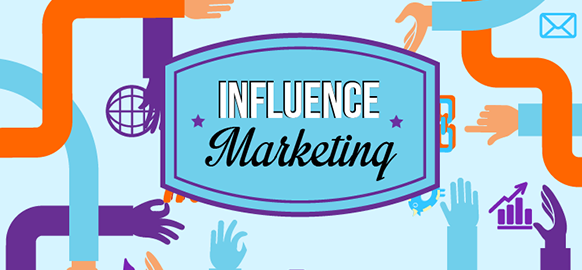Influence Marketing Is…
Although a potentially “hot topic” in content marketing, Influence marketing has been around since the days of greek curators and royal or celebrity endorsements of soaps and beverages in the late 1800’s. Today, we’d defind Influence Marketing as the act of engaging with current and potential leaders in your industry in order to gain ranks as a leader yourself, to increase meaningful activity on social media platforms, as well as to build your digital (and face-to-face) community of brand advocates.
Like all marketing efforts, influence marketing is as an investment in your brand’s future. As social media progresses and the use of mobile devices rise, companies need to focus on their overall digital selves. Much like face-to-face networking, building a strong online presence and attempting to engage your industry’s influencers is an important part of a company’s digital identity.
Is it possible for B2B companies and Advisory Businesses to use influence marketing in order to gain social reach and establish themselves as industry leaders? It’s imperative; but like any other marketing effort, it requires strategic planning to meet your specific goals.
Why Influence Marketing?
-
To gain relevant followers and connections.
-
To build your online community of brand advocates.
-
To become regarded as an industry leader and expert.
-
To engage current and potential leads. Curating discussion on social media allows others to see that you’re active and connected to your digital brand community.
-
To increase leads. One goal of nurturing your online community is to ultimately gain leads, or to push those interested from the shopping stage to the checkout (or client status). I recently read an article on Social Media Today about identifying and measuring social media influence for b2b by Jennifer Bishop where she described influencers as, “people that affect any component of the sales cycle, but are removed from the actual purchase decision.” Getting a promotion through a mention, retweet, repost, etc. by an industry influencer is a suggestion to that influencer’s audience that you are a credible, viable source. The influencer may not be there rooting the purchaser on at the checkout, but they may plant a seed.
-
To make sales. As a piece of marketing, the end goal of social media is to make the sale. By engaging influencers you can grow your digital community, gain brand advocates and turn leads into viable engagements.
Find Key Influencers
Start with your current business connections. As a professional, you already have a network of face-to-face connections. Make sure to add them to your Linkedin network and on all relevant platforms on which you are active — Twitter, Facebook, Linkedin, etc. For B2B and advisory businesses Linkedin is statistically the best place to start.
Participate in real-time social media events on Twitter and Google+. There are many Twitter Chats which occur weekly or monthly and are relevant to your industry. Check out a few different twitter chats related to your industry. Twitter chats give you a chance to engage with others in your industry. Can’t find one? Start your own! Some additional tools to aid in participating in twitter chats are twchat.com, tweetchat.com and more.
Participate in relevant Google+ Hangouts and connect to Google+ Communities.
On Linkedin, join relevant groups and post your content to them. Comment on and like others articles.
Fill out your Twitter bio. There is an SEOMoz app called “followerwonk” which allows you to search people’s twitter bios. Use this site to search for influencers to follow based on location and keywords.
Search twitter for relevant hashtags and follow or engage with those who you find to be good sources of content and relevant industry influencers.
Follow Your Influencers
Follow the influencers you want to follow you, comment on their blogs and begin discussions.
If there is a regional restriction to your business, ensure that those you’re engaging with are in the right area. Additionally, make sure those you’re engaging are companies with which you want to do business. Do your research.
Engage Influencers With Content
Talk about issues your influencers care about. When creating content, keep influencers in mind. For example: perhaps you just read a relevant and meaningful article by one of your key industry influencers. You could write an article in response to or about the same topic and mention that influencer’s article. If you reach out to that influencer to let them know they’ve been mentioned, they may comment or repost it themselves. Keep influence marketing in mind as part of your content marketing strategy.
Credibility
Tell your audience why you or your brand should be deemed an industry leader. Do you have an impressive portfolio (it had better be online and easily accessible), does your Linkedin profile speak volumes, are you regularly engaged in meaningful discussion where your influencers and industry peers are present? Have you linked your google+ profile to the content you create so that your headshot shows up in google next to it? Give your audience the best chance of finding you and recognizing you for your content by verifying your google authorship. You can also link your google+ page with your website in order to provide Google with information to help determine the relevancy of your site to a user query on Google Search.
Influence marketing is an essential part of curating the best possible online community and giving your content the best reach ability. In order to succeed in any facet of social media, participation is necessary. That doesn’t just mean scheduling five posts a week and being done with it. You have to network, comment, like and simply be visibly active online.
– by Tara Urso, Social Media and Marketing Strategist



Leave a Reply